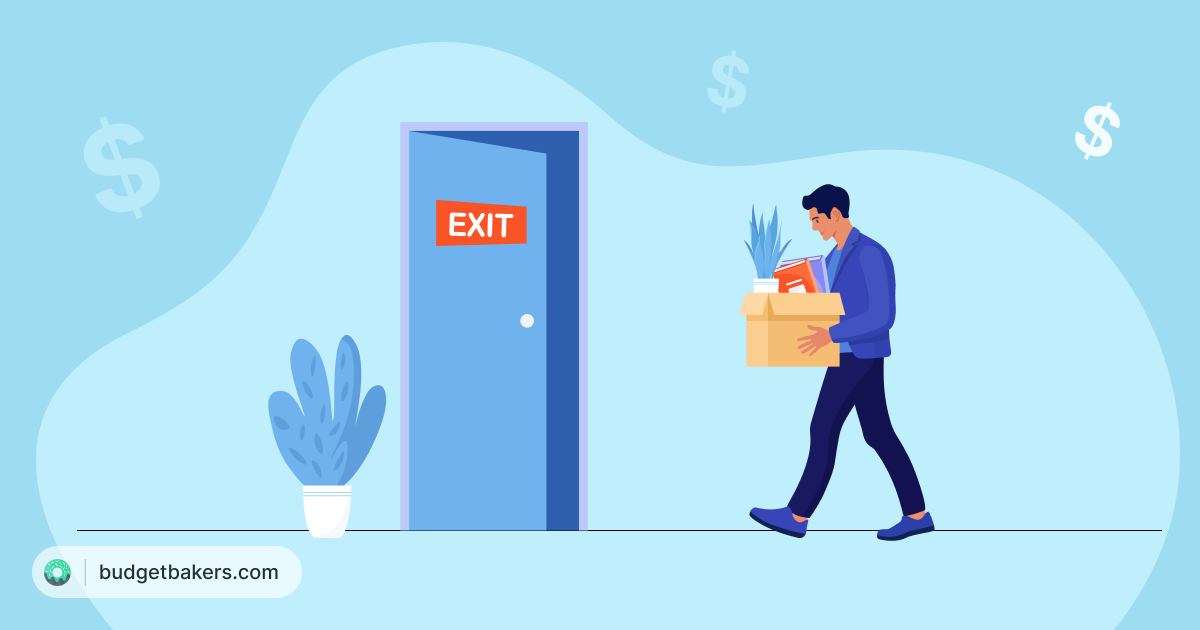Written and fact-checked by business journalist
Leonie Bauer
The year 2022 was a year of staggering financial uncertainty. Inflation reached record highs, and fears of recession, i.e., a decline in economic growth and resulting job losses, leaves consumers wondering when will prices go down.
In January this year, record levels of inflation continued to batter consumers, as everything from food to rent to energy continued to climb.
In the US, inflation has slowed on an annual basis, dipping to 6.4% after peaking at about 9% last summer, partly as gas has become cheaper. But the deceleration is true even after volatile food and fuel are stripped out. So-called core consumer prices have climbed 0.3% or less for each of the past three months. That’s faster than the 0.2% month-to-month changes that were typical before the pandemic but much slower than peaks from April 2021 to October 2022.
So people are finally experiencing some relief from what had been a relentless rise in inflation rates. But when will we experience lower prices?
Inflation Is Going Down, Prices Too?
The latest inflation numbers show that the rate of increase is slowing. In January 2023, U.S. inflation was 6.4%, down from 7.1% in November, 8.2% in September, and 9.1% in June (the peak).
In the euro area, we’ve seen a similar trend. The latest figures from January 2023 show a decrease of 0.7%, from 9.2% in December down to 8.5%. In October 2022, inflation in Europe had peaked at 10.6%.
In the UK, inflation slightly decreased, too, but is still at a very high level. The inflation rate was at 10.1% in January 2023 from a year earlier, down from 10.5% in December. January was the third month of declines in the inflation rate, but the double-digit increase shows Britain’s cost-of-living crisis persisting. That’s because food prices push higher. The annual rate of food inflation hovered near the highest level in 45 years, at 16.7%
Economists all over the world therefore doubt that prices will go down any time soon. Chief economist Mark Zandi of Moody’s Analytics says there are “some prices, some goods for which prices are falling. But broadly, prices aren’t falling. It’s just that the rate of increase is slowing.”
Prices are still well above the level of a year ago. Some price increases are particularly striking: The cost of eggs in the US, for example, has more than doubled, while prices for cereal products and baked goods have risen by 16.1%.
Now you’re probably wondering why it is that despite slowing inflation rates, everyday items are still highly expensive, or even getting more expensive. Let’s get into more detail.
Why Aren’t Prices Falling (Yet)?
It’s no secret that everything from groceries and gas, to airline tickets and rent is more expensive than it used to be, and people around the globe are left wondering when prices will go back to normal.
The short answer is that it largely relies on a variety of factors influencing today’s record-high inflation. Last year, the factors included post-pandemic consumer demand, ongoing supply chain shortages and the Russian war in Ukraine.
Now they have started to reverse. Freight and container costs have eased, causing prices throughout the supply chain to fall.
But to protect themselves from unpredictable price spikes, many companies have entered into long-term contracts that set the prices they pay to run their businesses months in advance – from buying ingredients to shipping goods around the world.
But supplier contracts aren’t the only reason for high prices. For businesses that need a lot of workers but have a hard time finding them, labor has become more expensive. Restaurants, nail salons, hotels and doctors’ offices will continue to face the cost of higher wages. The shortage of pilots is one of the factors that will likely make airfares more expensive this year.
The good news is that if the labor market remains strong, inflation eases and wages rise, consumers will be better able to withstand higher prices for everyday goods.
What You Can Do To Keep Costs Down
The question is how to save money and maximize spending when prices are high. While some effects of inflation are mostly unavoidable, there are some areas where you can cut back to lessen its impact on your wallet.
For example, meat, poultry, fish and eggs represent some of the foods with the highest price increases. Therefore, you may want to prepare a meatless meal one or more days a week. Alternatively, you can susbtitute meat for less expensive ingredients such as vegetables.
However, when shopping for groceries, you can’t avoid everything expensive. In this case, the use of cashbacks can be very useful. This way you get something in return for spending so much.
A Few More Tips on How to Lower Your Expenses During Inflation:
- Budgeting: Create a budget and stick to it. Know your monthly income and expenses and plan accordingly. This will help you keep track of your spending and identify areas where you can reduce your expenses.
- Shopping wisely: Shop for goods and services when they are on sale or when you can get a discount. Also, consider buying in bulk to save money.
- Comparing prices: Compare prices of goods and services from different vendors or suppliers. This way, you can identify the most affordable option that meets your needs.
- Avoiding unnecessary expenses: Avoid spending on unnecessary expenses such as eating out, luxury items, and impulse buying. Instead, prioritize essential expenses such as rent, utilities, and groceries.
- Saving: Consider saving some money regularly. This way, you can build an emergency fund to help you in times of financial strain.
- Negotiating: Negotiate with vendors or service providers to get the best deal possible. Sometimes, vendors may be willing to reduce their prices if you negotiate with them.
- Avoiding debt: Avoid taking on debt or using credit cards unless necessary. Debt can be costly, and the interest rates can add up quickly, making it harder to keep costs down.
By following these tips, you can keep your costs down during inflation and manage your finances more effectively.


